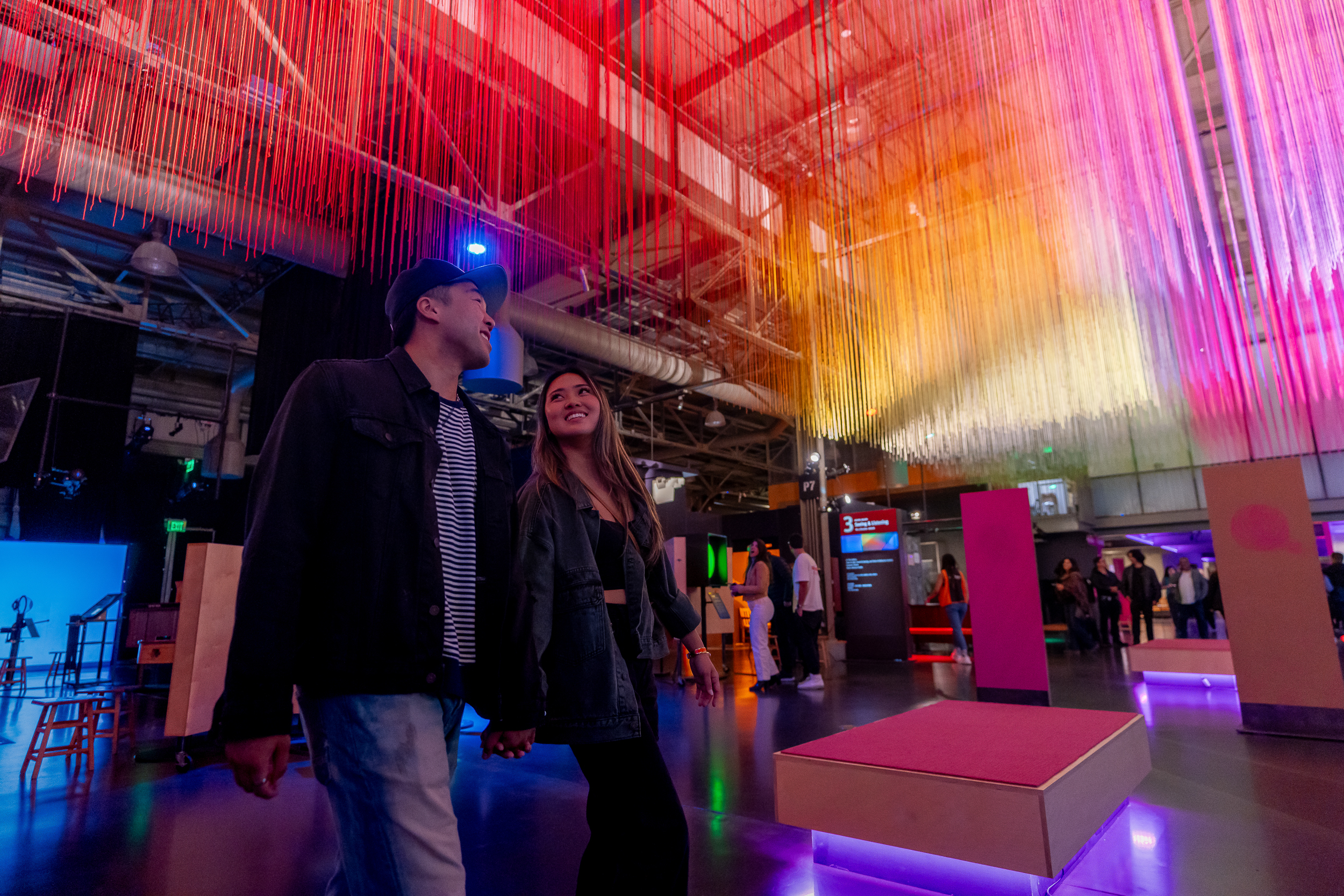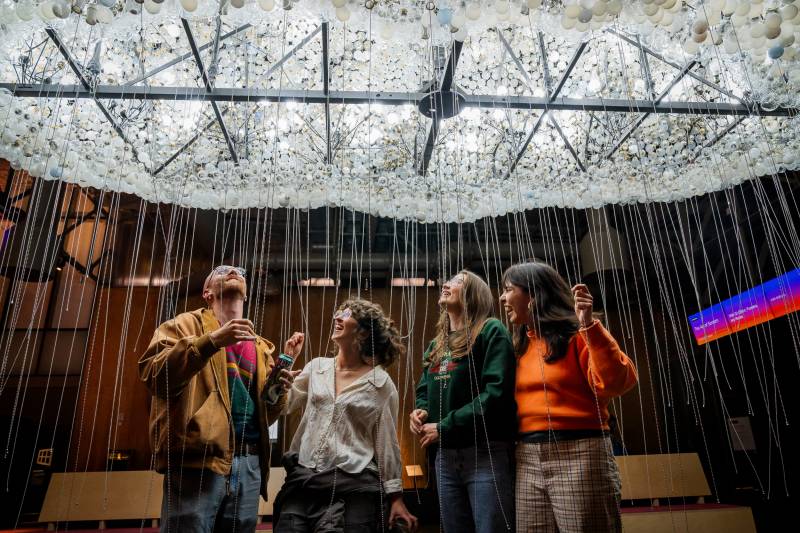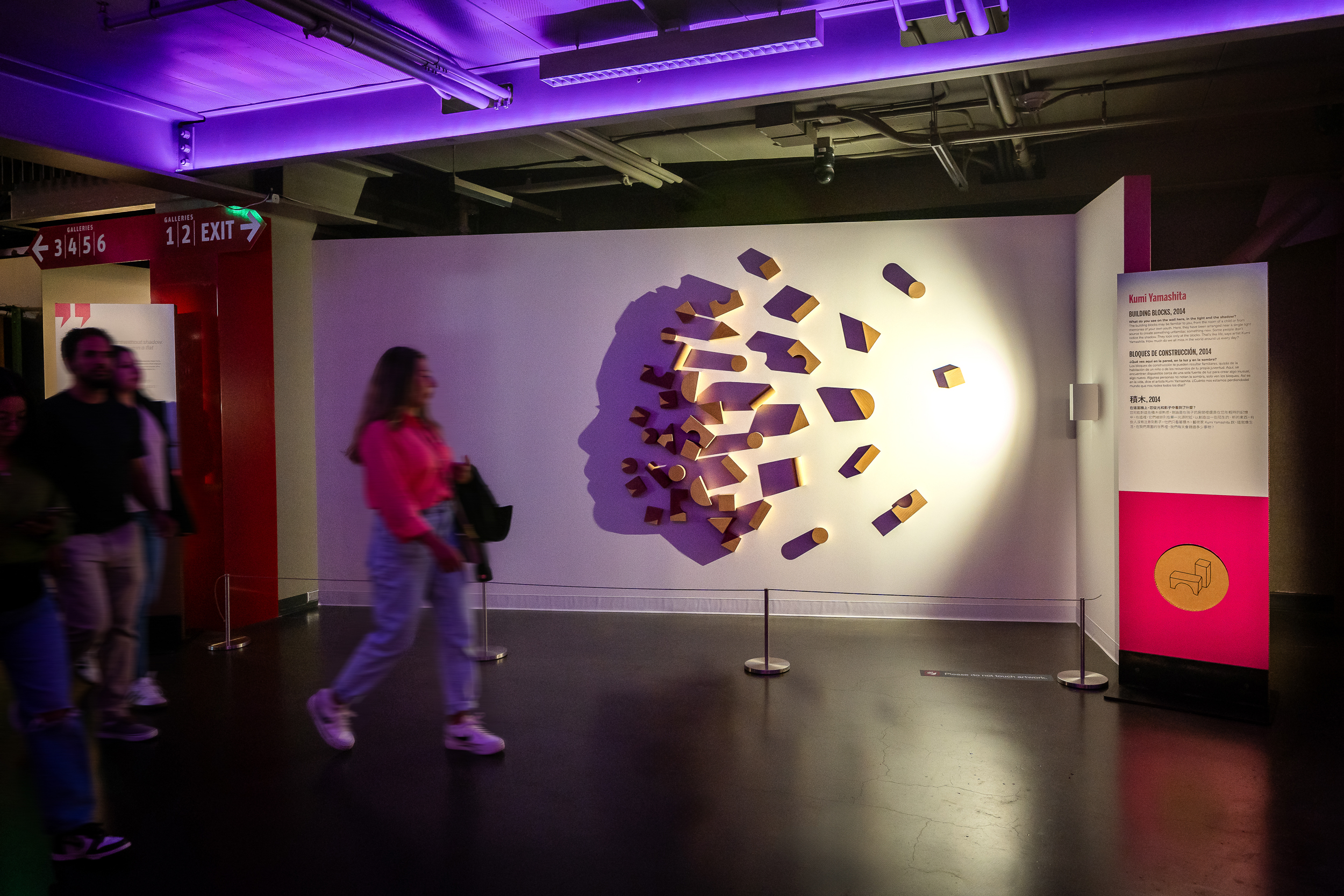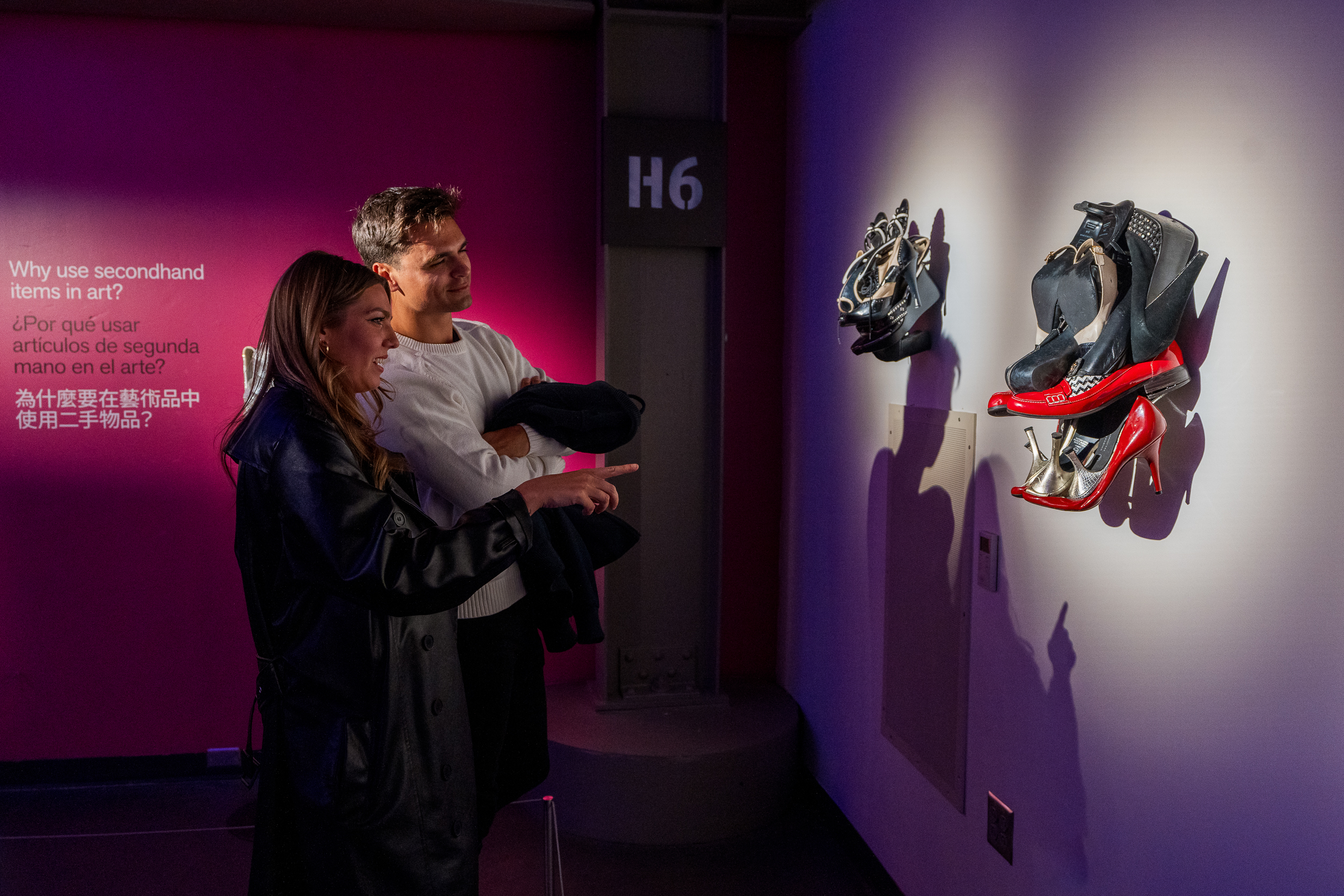The Exploratorium, the 55-year-old San Francisco institution full of frenetic energy, hands-on science and roving gangs of ecstatic children, might not seem like a place for visual art. And it’s true this museum doesn’t contain the sort of white-walled, hushed gallery spaces you find in certain cultural institutions.
But what the Exploratorium does provide in terms of a viewing environment is perhaps more immediate and compelling: art that is accessible to all ages, and finds guests in the midst of other discoveries to broaden their understanding of what art is.
ExtraOrdinary!, the museum’s newest exhibition of seven artists and collectives, meets all of the above criteria. Tied together by bright pink signage and lighting across several zones of the museum, this is a show of artwork made from everyday materials. The artists have taken cotton balls, wooden blocks, Lego bricks, burned-out lightbulbs and so much yarn, and turned them into sculptures, installations and interactive artworks.
Some of the pleasure in ExtraOrdinary! comes from seeing generally available materials achieve surprising shifts in scale. The Slow Art Collective’s Bamboo Weaving Star, a massive shelter-like structure made from criss-crossing poles and dangling yarn, invites visitors to weave, braid and knot to their heart’s content. The project is a bit like making potholders and friendship bracelets for giants; its cozy ambiance offers a calm area for focused activity within the bustle of the museum.

Further along the museum’s long pier, HOTTEA’s yarn installation, a three-dimensional “color picker” from the world of digital design, hangs from a wire grid near the pier’s ceiling, dangling single strings in nearly every shade imaginable over the heads of those walking or lounging below. In this part of the museum, with its taller ceiling and less dense exhibits, Analog Technicolor acts like a diffuse color bath, a bit of soothing amid all the ongoing stimulation.




